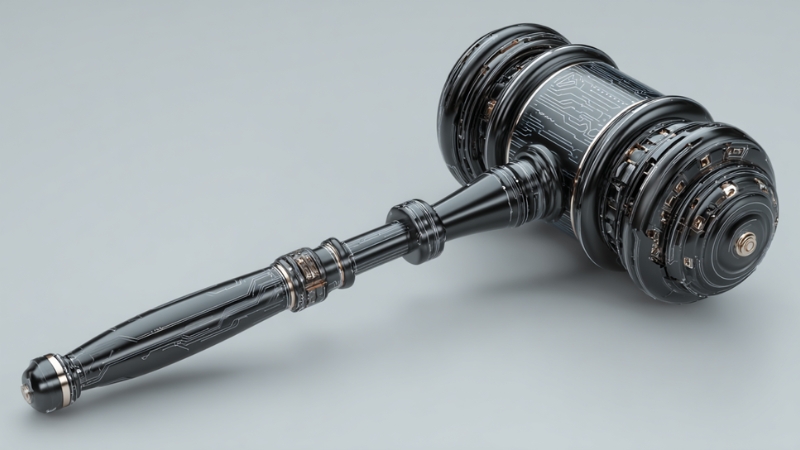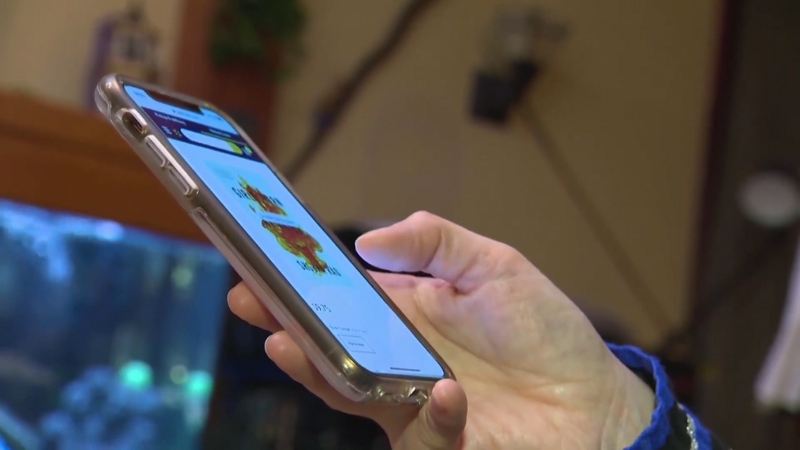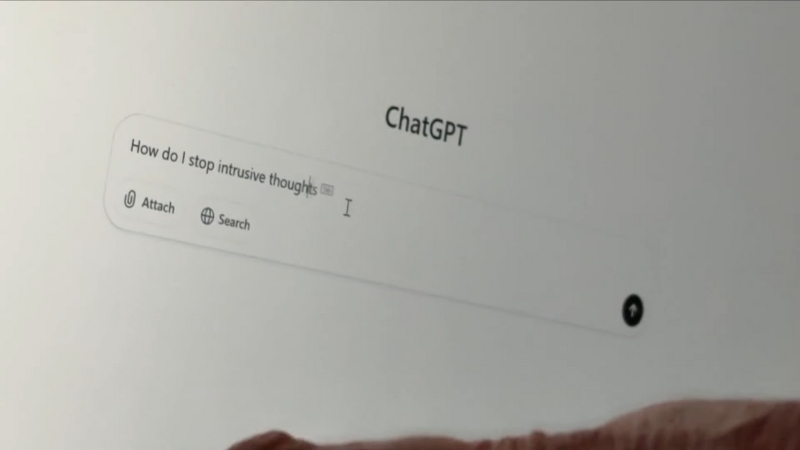Table of Contents
Illinois enacted the WOPR Act (Health and Oversight for Psychological Resources) in 2025 due to rising concerns about the unchecked practice of expert system in psychological health and wellness.
It was set off by the terrible self-destruction of 16 -year-old Adam Raine after extended interactions with an AI therapy chatbot.
Illinois was the preliminary state that outright outlawed AI systems from being accredited therapy suppliers.
The legislation’s ostensible goal is the defense of defenseless persons and the keeping of mental health therapy within the hands of certified professionals.
Major Provisions of the WOPR Act
| Classification | Instances | Certain Policy | Reasoning |
| Allowed | Scheduling, invoicing, file monitoring | Administrative processes in clinics | Sustains effectiveness without interfering in care |
| Reflection applications, state of mind trackers, inspirational devices | General wellness applications | Motivates individual development devices while staying clear of therapeutic claims | |
| Professional tests, academic researches | Study tasks with specialist supervision | Permits innovation under rigorous oversight by qualified specialists | |
| Prohibited | Automated therapy bots posing as experts | AI chatbots carrying out analysis tests, supplying prescriptions, or therapy sessions | Lack of liability, no understanding ability, threat of injury to clients |
| Using AI for real-time therapy conversations rather than transcription/reminders | Accredited psychologists applying AI during treatment sessions beyond small help | Stops AI from replacementing for certified judgment | |
| Nationwide platforms obstructed in Illinois | Companies offering AI-based mental wellness solutions straight to Illinois citizens | Guarantees clients are directed toward human experts |
Lawmakers that sponsor the WOPR Act desired to clearly differentiate assistive administrative innovation from innovations that purport to offer explicit mental care.
As the situations of people engaging with independent AI systems on very personal problems, experiencing some unintentional injury, enhanced, fears adhered to.
What’s Prohibited
Restrictions under the act especially address cases where the AI might replace itself or mimic a human therapist.
Legislators viewed reckless AI communications as unsafe because the latter can not be held responsible and lacks empathetic touch as well as training, which is vital to treatment.
Key restrictions consist of:
- Unnaturally smart chatbots carrying out analysis examinations, offering prescriptions, or perhaps recurring therapy sessions
- Licensed psychologists using AI while working with therapy sessions for functions aside from insignificant background aid, like transcription or reminding
- Firms that market AI-based mental health and wellness solutions directly to Illinois homeowners, also where such services are freely utilized throughout various other states
- Protectors of the regulation think that the policies avert disasters due to the fact that people are transported to the human experts they need, real medical or mental aid.
What is Permitted?
All applications of AI are banned. Legislatures acknowledged that expert system is a useful help in non-medical technique.
Instead of preventing each application itself, the act permits AI programs that improve productivity and health without getting rid of the competent discernment of a specialist.
Enabled usages are:
- Administrative procedures like scheduling, billing, and data keeping that reduce work for workers
- Generic wellness programs like reflection programs, state of mind screens, and motivational programs are produced as personal growth workouts as opposed to as therapy programs
- Research study tasks where specialist specialists supervise AI applications under controlled scenarios, to make sure that innovation profits under effective controls
Advocates of the WOPR Act frequently point out tragedies like the Adam Raine case to argue that AI can not be relied on with mental treatment.
They indicate legal criteria where also human specialists are held accountable for clinical carelessness, such as emergency room malpractice, which frequently results in claims and multimillion-dollar settlements in Illinois.
For instance, rosenfeldinjurylaw.com outlines how clients damaged by diagnostic failings or postponed treatment in Chicago Emergency rooms consistently seek justice through the courts.
Enforcement Systems


Reliable policy is also reliable enforcement, and Illinois made efficient devices to acquire conformity.
Lawmakers recognized that there would certainly be no penalty and no watch if companies declined to abide by limitations.
Handing over obligation to the Illinois Division of Financial and Expert Guideline offered a solitary, central body that might keep track of health care compliance and levy penalties.
Secret enforcement functions include:
- A $ 10, 000 charge per infraction, a sign that the state is dead significant about prevention
- Powers of oversight and inquiry that are conferred to the Illinois Division of Financial and Professional Policy, setting the department broadly to control compliance
- Restriction of noncompliant business from operating within the state in its entirety
Market actions show the garish effect of the measures. Ash Therapy , which is a leading AI therapy supplier, instantly terminated Illinois users’ accessibility.
Various other companies will likely do the same after comparable constraints due to the fact that the reputational and financial threats of disobeying the law surpass potential revenue in Illinois.
Authorities additionally want the apparent examples to lure people into ready compliance as they dissuade using loopholes.
Broader Implications and Inspirations
The WOPR Act did not just shape plan in Illinois but additionally stimulated nationwide arguments regarding just how much control states should exercise over expert system in healthcare.
Some onlookers see the act as a genuine person safety measure, while others declare it protects therapists’ jobs by decreasing competitors.
Patient Safety vs. Financial Protectionism
Illinois federal government officials justified the work as being needed to secure susceptible people.
They worried accounts of malady where people utilized unmonitored AI to deal with serious emotional concerns.
From their perspective, treatment must constantly remain with properly educated hands that will certainly be capable of comebacking with duty, care, and capability.
Critics, nonetheless, assert that the act also serves as a method to maintain job to life for specialists via the inhibition of market developments by AI competitors.
Principal disagreements framing this dispute are:
- Supporters see the work as needed to the prevention of clients that may error AI discussions as genuine therapy
- Movie critics claim the law secures experts by taking away the competitors, impeding the advancement of affordable digital psychological health gadgets
Both point of views mirror a consistent conflict between improving healthcare technology and preserving the olden customs of care.
Enforcement Ambiguities


Clear enforcement ends up being extra made complex when AI tools obscure the line in between wellness and therapy.
Regulatory authorities encounter a difficulty in choosing where individual support ends and professional treatment starts.
Wellness applications frequently give inspiration or assisted exercises that might look like therapy in practice, also if marketed in a different way.
ChatGPT-like systems complicate the matter even more given that table talks can easily shift right into mental wellness area.
Examples of possible grey locations consist of:
- Journaling apps that evaluate state of mind data and give inspirational responses raise concerns about whether this qualifies as therapy
- Reflection apps that dynamically change their instructions based on individual input, creating a semi-personalized therapeutic impact
- Conversational platforms where users review stress and anxiety, depression, or personal struggles, causing recommendations that might go across into therapy
Such obscurities raise the possibility of claims where companies evaluate the limitations of the legislation in court.
Illinois might for that reason face future legal battles over how these arrangements are interpreted and implemented in practice.
Effect on Healthcare and Technology Sectors
@drdennisschimpf AI is already altering medicine– and not constantly for the better. Are you ready wherefore’s coming? Comply with for no-fluff responses from a plastic surgeon. #AIinMedicine #FutureOfHealthcare #DoctorExplains #MedicalTruths #PlasticSurgeonReact ♬ initial sound– Dennis Schimpf, MD MBA
Medical care and technology industries are already adapting to the implications of the WOPR Act.
Carriers need to thoroughly review their present systems to avoid offenses, while tech companies encounter stress to reassess product layout and advertising.
Conformity expenses are expected to increase as organizations carry out stricter safeguards, but noncompliance brings even greater risks.
Action Items for Health Care Executives
Execs leading health care organizations should take proactive steps to stay straightened with the regulation.
Without prep work, clinics take the chance of fines, lawsuits, or damage to person depend on.
Specific steps include:
- Conducting audits of all AI devices in use to verify they abide by Illinois regulations
- Renegotiating supplier contracts with stricter terms on privacy, liability, and adherence to the legislation
- Carrying out normal staff training programs to clarify what kinds of AI usage are acceptable and what are prohibited
Structure systems for keeping track of AI interactions, tracking person outcomes, and recording damaging occasions for conformity records
Market Responses


Modern technology companies are shifting their techniques to adapt to the Illinois ban.
Some have actually withdrawn their AI treatment solutions from the state totally, while others restrict functionality to wellness-oriented features.
Market experts predict that Illinois will certainly not be the only state to move in this instructions, motivating companies to get ready for wider constraints nationwide.
Likely market feedbacks consist of:
- Limiting access to AI treatment systems in states that take on similar legislations
- Revamping AI tools to stress wellness and management assistance instead of treatment functions
- Boosting lobbying efforts focused on shaping future state and federal policies to prevent total prohibitions
Summary
WOPR Act 2025 marks a definitive shift in expert system law within medical care, relocating far from light oversight to straight-out prohibition in some areas.
At the exact same time, quick breakthroughs in medical and analysis equipment highlight the comparison in between advancing clinical devices and tightening restrictions on artificial intelligence.
Illinois lawmakers mounted the regulation as a safety action for individuals while also attending to concerns over professional work safety and security.
How other states respond will certainly form the future of AI in treatment, either enhancing Illinois’ restrictive design or favoring structures that permit careful, monitored usage.

